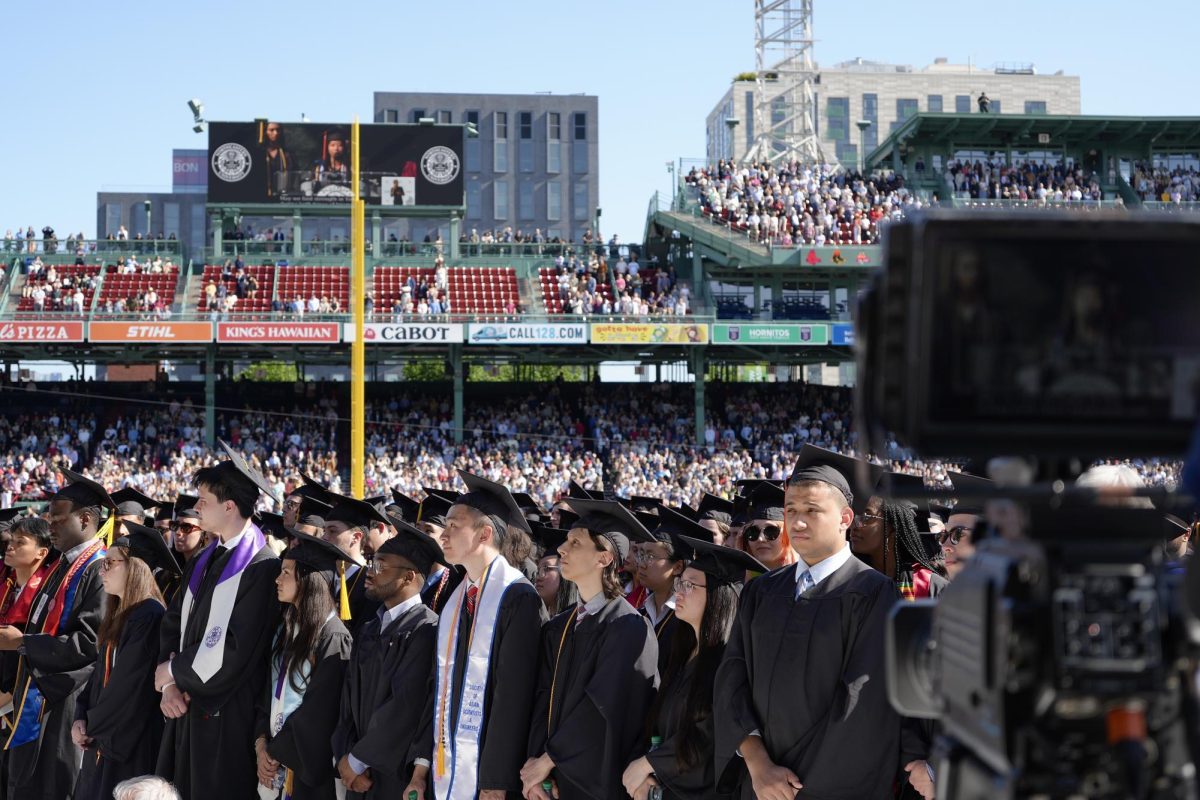At an academic institution where many of the course syllabi provided to students strictly forbid or penalize late submission of assignments, the university has procrastinated their duty to provide an important document to the communities in which we reside.
Every 10 years, every major institution in the Boston area must submit to the Boston Redevelopment Authority (BRA) a document outlining their construction, zoning and development plans for the next 10 years. Northeastern’s last Institutional Master Plan (IMP) was submitted in 1999 and approved in 2000, with the most recent addendum, about International Village, submitted in 2006. Now it’s 2010, the deadline to submit the new plan is fast approaching, and the university has nothing to show the city or its residents. The summer deadline for the submission wasn’t a surprise, and the Boston Zoning Commission rules are clear.
According to the BRA, the purpose of the IMP is to “enhance their public service and economic development role in the surrounding neighborhoods,” a field that Northeastern’s actions have historically wavered from its rhetoric. The university cites the economic downturn as the major reason that the document is not ready, but now they have to plead the case for an extra year to assemble the necessary information to the constituency they have at times neglected or ignored completely.
Residents are understandably upset at the university’s failure to provide them a plan to make good on longstanding promises to house more students on-campus and out of their neighborhoods.
In the IMP submitted in 2000, the plan was to achieve increased university housing through development of more residence halls, like Building K, a plan that involved demolition of Culinane Hall, in the eastern part of campus, to be replaced by a 22-story residence hall, among several others. These projects were halted due to the recession, but Northeastern continues to increase enrollment each year, thus increasing the demand for student housing off campus and forcing Boston residents to live alongside students or move out.
In fact, Northeastern violated the terms of its last Institutional Master Plan last year when it enrolled 15,585 students instead of the “approximately 15,000” as stated in the IMP from 2000, further demonstrating how Northeastern ignores the vocal dissatisfaction of groups like the Community Alliance of Mission Hill. Maybe Northeastern’s logic is, “Why even have a master plan if we aren’t going to follow it?”
Half of Northeastern students live off campus, according to the College Board. This number makes the surrounding communities fill with temporary residents that can create disturbances, trash neighborhoods, raise rent and lower property values. Community focus groups and neighborhood leaders have long bemoaned Northeastern’s over-enrollment, accepting more students in recent years than it can accommodate in terms of housing and other services.
Other institutions have realistically faced their own economic situations and have made their Institutional Master Plans public, providing them on time or ahead of schedule despite the difficulties in finances and planning they may have faced. Both Boston College and Harvard University, whose endowments saw significant blows in the financial crisis, have both filed their respective master plans on time. Northeastern should follow suit and stop dragging its feet on its promises to the community. Better yet, stop making promises to the neighbors entirely if there is no intention or plan to keep them.
Furthermore, why should residents of the surrounding neighborhoods grant Northeastern a one-year extention on an important and mandatory document it has neglected to prepare on time? Northeastern has certainly not been the only institution effected by the economic downturn, yet this is administrators’ only excuse for lagging on their responsibility to the redevelopment authorities, and the residents of Roxbury, the Fenway and Mission Hill, whose fates, both personal and financial, are largely dependent on the plans of the university. They have a right to an honest and straightforward plan about the future of their homes and livelihoods. They deserve a plan, crafted with input from all stakeholders and submitted on time, that is actualized and followed in the coming years.
Related article: University asks for ‘Master Plan’ extension








